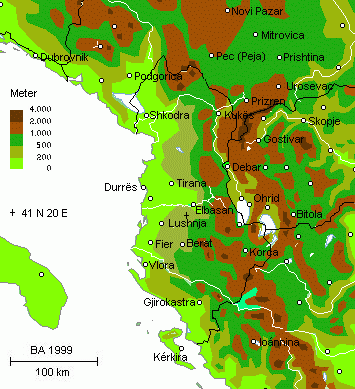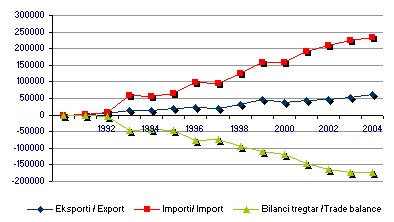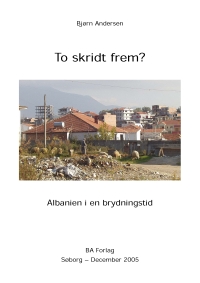Sidste Nyt fra Albanien, Kosóva og Makedonien
The Latest News from Albania, Kosóva and Macedonia
# 308 - 8' årgang - 23.06.2006
Version 1.0 •
PDF for printing •
Info om »Sidste Nyt«
Udgiver:
Bjørn Andersen
Publisher:
Bjoern Andersen

President George W. Bush looks at Austria's Chancellor Wolfgang Schuessel, back to camera, as they gather with leaders of the European Union Wednesday, June 21, 2006, in Vienna. From left are: EU President Jose Manuel Barroso; EU Secretary-General Javier Solana; Austria's Vice Chancellor Hubert Gorbach; Chancellor Schuessel; Benita Ferrero-Waldner, EU Commissioner for External Affairs, and President Bush. White House photo by Eric Draper
![]()




















